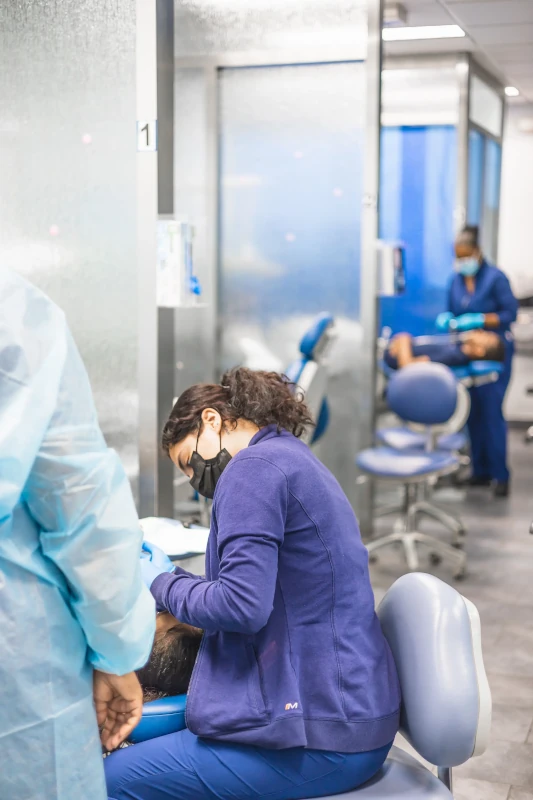Post
Teething Troubles? What’s Normal and When to Call the Dentist
If your baby has suddenly turned into a drooling, cranky, chew-on-everything machine, chances are, the teething stage has arrived. NY pediatric dentistry experts often get questions from concerned parents during this phase — and for good reason.
While teething is a natural part of development, it can bring along some pretty confusing symptoms. From swollen gums to sleepless nights, it’s tough to know what’s normal and when it might be time to call in the pros.
Let’s break it all down so you can feel confident (and a little less frazzled) during this milestone moment.
When Does Teething Start?
Most babies start teething around 6 months, though it can happen as early as 3 months or as late as 12. There’s a wide range of “normal” here, so if your little one’s pearly whites are taking their sweet time, it’s usually not a cause for concern.
Teeth generally arrive in pairs, starting with the bottom central incisors, followed by the top ones. By age 3, most kids have their full set of 20 baby teeth. Charting which tooth should be coming in and when can be helpful, but every baby is different, and some may not follow the usual pattern.
Signs Your Baby Is Teething

You’ll probably notice some (or all) of these signs when teething is underway:
- Increased drooling: Think waterfall levels of drool
- Irritability or fussiness: Especially right before a tooth breaks through
- Chewing on everything: Toys, hands, furniture, your shirt — all fair game
- Swollen or tender gums: You may even spot a small bump where the tooth is emerging
- Sleep disruptions: Because teething messes with nap time
These symptoms can come and go and usually get worse a few days before the tooth erupts. Once the tooth breaks through the gum, things tend to settle down - until the next one starts making its move.
What’s Not Normal During Teething?
Here’s where things get a little tricky. Teething gets blamed for a lot — fever, diarrhea, and even rashes — but the truth is, most pediatricians and dentists agree that these aren’t directly caused by teething.
That said, mild symptoms may occur because teething weakens your baby’s immune defenses just a bit. For example, all that drool can irritate the skin around the mouth, leading to a rash. And some kids may get a low-grade fever (under 100.4°F) from gum inflammation.
Here are the red flags to watch for:
- Fever over 100.4°F
- Persistent diarrhea
- Vomiting
- Refusal to eat or drink
- Signs of an ear infection (tugging at ears, imbalance, etc.)
If you see any of these, it’s best to talk to your pediatrician. While these issues might happen while teething, they’re likely due to something else.
Tried-and-True Teething Remedies
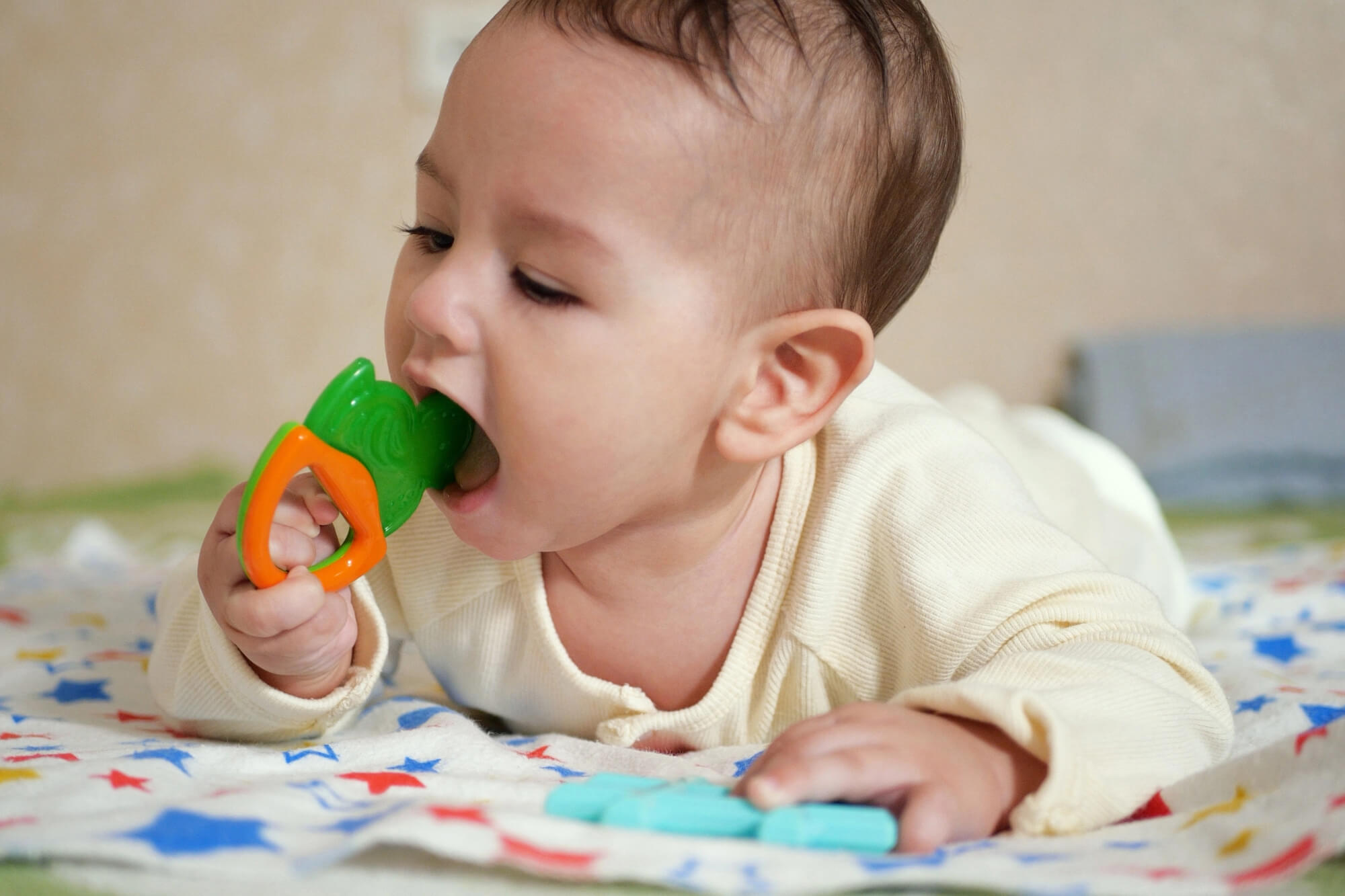
So, how can you help your little one feel better while their teeth are coming in? Here are a few time-tested tricks:
1. Teething Toys
Look for soft, safe, and easy-to-grip teething rings. Bonus points if they can be chilled in the fridge (not freezer!) to help numb sore gums.
2. Cold Washcloth
Wet a clean cloth, chill it in the fridge, and let your baby chew away. It’s soothing and safe.
3. Massage the Gums
Wash your hands and gently rub your baby’s gums with your finger. The pressure can relieve discomfort and give you some bonding time too.
4. Offer Something to Suck or Chew
Breastfeeding or bottle-feeding can help soothe your baby, but be mindful if nursing seems to worsen the discomfort. Sometimes, chilled purees or soft foods (for older babies) can offer some relief too.
5. Medication (If Necessary)
For especially tough days or nights, talk to your pediatrician about using baby-safe pain relief like acetaminophen or ibuprofen (if over 6 months). Just be sure to follow dosing instructions exactly.
And a quick word of caution: avoid teething gels or tablets with benzocaine or belladonna, as they can be dangerous for young children.
When to Call the Dentist
Most NY pediatric dentistry specialists recommend that your child see a dentist by their first birthday or within six months of their first tooth — whichever comes first. This might seem early, but those baby teeth play a big role in your child’s speech, nutrition, and future dental health.
But aside from that initial check-up, here are a few scenarios when you should reach out to your pediatric dentist:
1. Something Looks Off
If you notice anything unusual, like discolored teeth, bleeding gums, or strange bumps, give your dentist a call. It’s better to check it out early than wait and see.
2. Your Child’s Teeth Are Coming in Crooked or Overlapping
It might be nothing, as baby teeth often straighten out over time, but your dentist can monitor development and catch any early signs of orthodontic issues.
3. Excessive Teething Pain
If your child seems to be in more pain than expected, it’s worth getting a professional opinion. In some instances, teeth come in at odd angles or have complications that need attention.
4. No Teeth by 15 Months
Again, there’s a big range of “normal” here, but if no teeth have shown up by 15 months, your dentist may want to take a look just to rule out any developmental issues.
A Note on Baby Tooth Care
Yes, baby teeth matter! Even though they eventually fall out, they pave the way for healthy adult teeth. So once that first little tooth makes its debut, it’s time to start brushing.
Use a tiny smear of fluoride toothpaste (about the size of a grain of rice) and a soft baby toothbrush. Once your child turns three, you can increase the amount of toothpaste to a pea-sized dollop.
Make brushing part of the routine early, and try to keep it fun. Sing a song, let them hold the toothbrush, or brush together in front of the mirror — whatever helps build good habits.
Looking for a Highly Skilled NY Pediatric Dentistry Expert?

Teething may be a bumpy ride, but it’s one your child (and you) will get through with the right support and a little know-how.
From understanding what symptoms are totally normal to spotting red flags that warrant a call to your dentist, staying informed is key. And remember, those baby teeth play a big role in your child’s long-term oral health — which is why early visits to a pediatric dentist matter so much.
If your child is teething or ready for their first dental check-up, the team at Perfect Smile Doc is here to help. We’ll guide you through every stage of your child’s dental development with gentle care and expert advice.
Book an appointment with us today and give your child the perfect start to a healthy, happy smile!
Not Sure if You’re Covered?
Your Perfect Smile is within reach, and we're here to help you every step of the way. We can streamline the process for you by contacting your insurance company and acquiring a detailed breakdown of your specific plan information. Let us take the guesswork out of navigating insurance and payment options.
Learn More
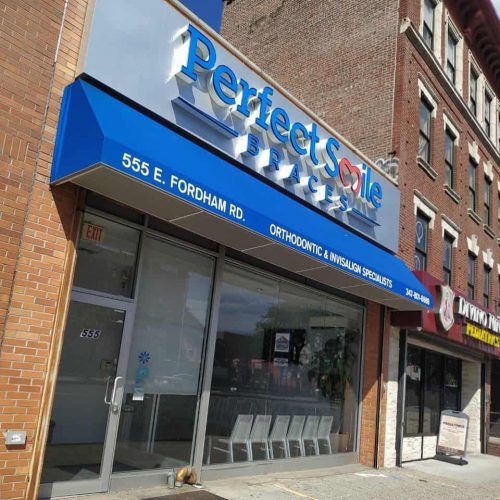
555 E FORDHAM RD BRONX, NY 10458
MONDAY TO FRIDAY 9:00 AM – 6:00 PM
SATURDAY 8:00 AM – 2:30 PM
B
D
4
Bx12
Bx12+
Bx9
Bx15
Bx17
Bx22
Bx41
Bx34 B Bx1
Bx2
BxM4
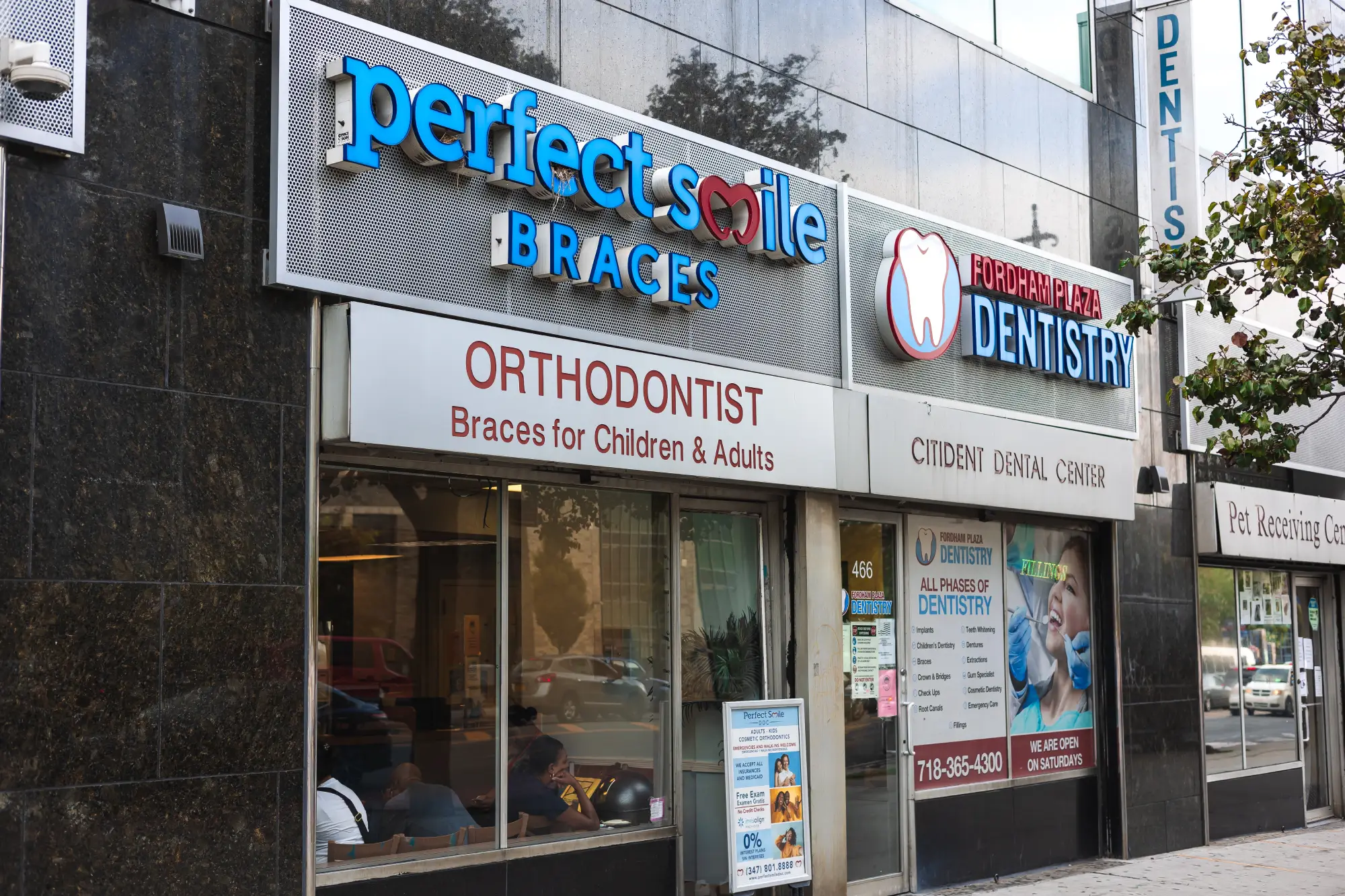
468 E FORDHAM RD BRONX, NY 10458
MONDAY TO FRIDAY 9:00 AM – 6:00 PM
SATURDAY 8:00 AM – 2:30 PM
B
D
4
Bx12
Bx12+
Bx9
Bx15
Bx17
Bx22
Bx41
Bx34
Bx1
Bx2
BxM4
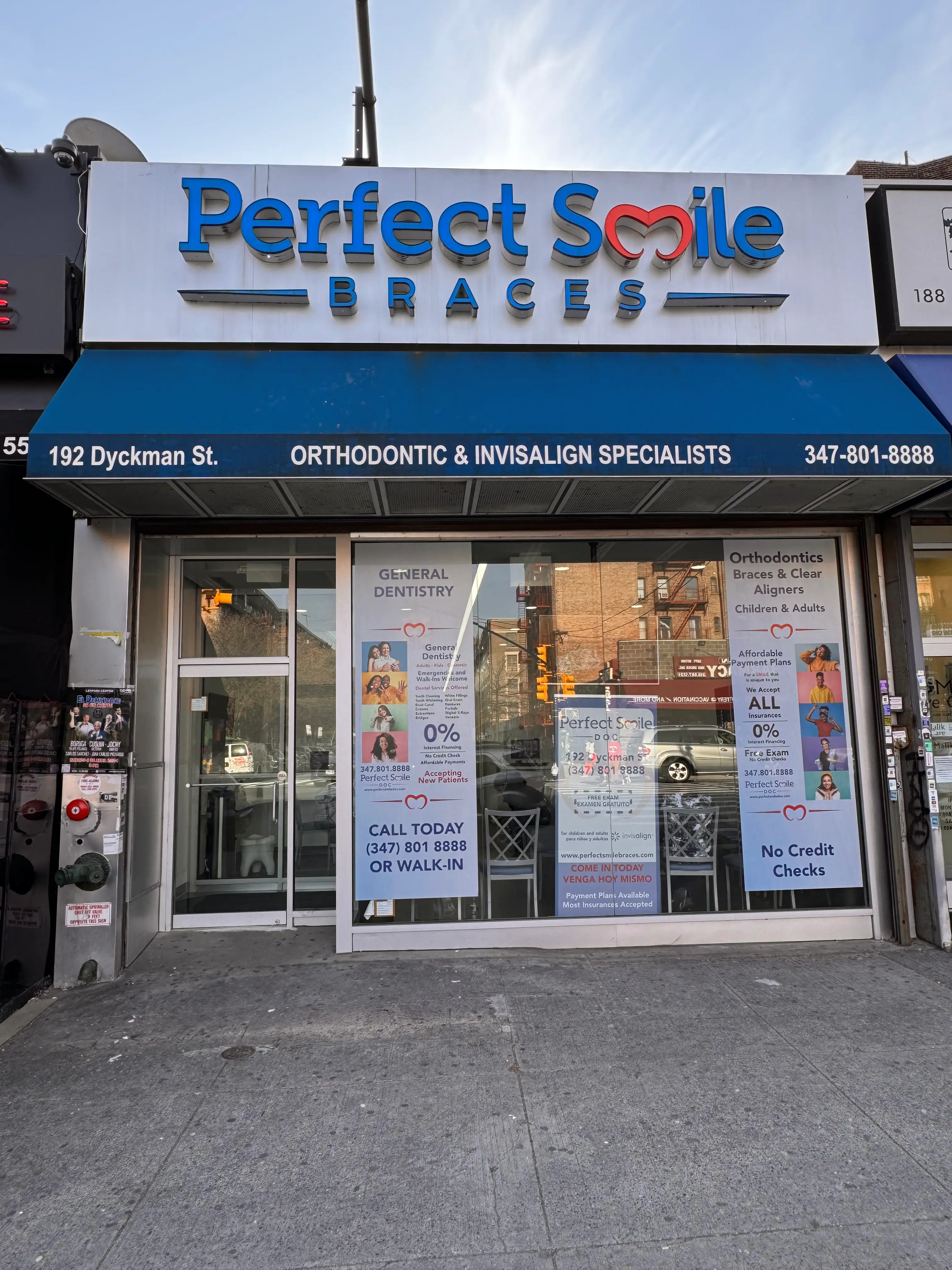
192 Dyckman St New York, NY 10040
MONDAY TO FRIDAY 9:00 AM – 6:00 PM
SATURDAY 8:00 AM – 2:30 PM
A
1
M100
Bx7
BxM1
Bx12
Bx12-SBS
Bx20
M3


